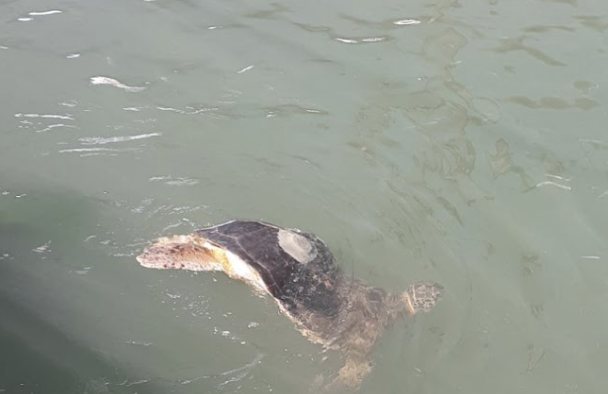Trump administration proposes fundamentally weakening Endangered Species Act with harmful new rules
The proposed rules would undermine extremely popular law; public has 30-days to submit comments
WASHINGTON, D.C. — November 19, 2025 — The Trump administration is proposing to fundamentally weaken the Endangered Species Act (ESA) in ways that could bring imminent harm to imperiled species. If finalized, the rules would bias listing decisions with unreliable economic analyses, obstruct the ability to list new protected species, and make it easier to remove those now on the federal endangered or threatened list. The rules would also make it harder to designate and protect critical habitats for threatened and endangered wildlife, to protect species impacted by changing environmental conditions, eliminate automatic protections for threatened species, reduce voluntary conservation incentives and weaken the consultation process.
The Trump administration’s rules could send some of America’s most vulnerable plants and wildlife, such as monarch butterflies, sea turtles, manatees, wolverines, and hundreds more, on a pathway toward extinction.
The proposed rules follow other attacks against wildlife by the Trump administration this year, including one that would allow for the destruction of species’ habitat, proposals to rescind the Roadless Rule and Public Lands Rule, and an effort to convene a committee of the President’s own appointees to effectively decide the fate of endangered species.
According to polling data published in June 2025, more than four out of five Americans support the Endangered Species Act, a profound level of agreement that has held firm for three decades. Additionally, support for the bedrock environmental law is consistent among people living in urban, suburban, and rural places.
Background
During the first Trump administration, similar attacks on the ESA led to tangible harm for species, which the Endangered Species Coalition documented. Those attacks were met with overwhelming opposition from the public. More than 800,000 people and multiple states submitted comments against the harmful rules. The National Congress of American Indians passed a resolution in opposition.
When the rules were finalized, environmental groups brought the Trump administration to court, into what has continued into a six-year legal saga.
Coalition Partner Statements
“These Trump proposals to weaken the Endangered Species Act amount to an extinction plan for our most treasured wildlife,” said Susan Holmes, Executive Director, Endangered Species Coalition. “For the last fifty years, the Endangered Species Act has been a global model for recovering species from manatees to wolves to the bald eagle. Reinstating rules that scientists have rejected would put these species and more back on the path to extinction.”
“For decades, the vast majority of Americans have supported strong protections for our wildlife — from bald eagles to polar bears to Pacific Northwest salmon,” said Earthjustice attorney Kristen Boyles. “Trump’s attacks on the Endangered Species Act seriously misread the room. Most people are not going to allow the sacrifice of our natural world to a bunch of billionaires and corporate interests.”
“These changes were unlawful the first time they tried, and they are unlawful now,” said Rebecca Riley, Managing Director at NRDC. “This would undermine a successful and wildly popular law to help out billionaires in the oil and gas, logging, and mining industries.”
“Draconian regulatory proposals targeting the Endangered Species Act put America’s beloved wildlife at risk of extinction,” said Andrew Bowman, president and CEO at Defenders of Wildlife. “Such sweeping rollbacks endanger our natural world and undermine decades of concerted bipartisan efforts to protect and restore America’s wildlife.”
“Rolling back these protections would put politics over science and corporate profits over the survival of wildlife,” said Joanna Zhang, Endangered Species Advocate with WildEarth Guardians. “Unlawfully weakening the Endangered Species Act would spell disaster for species we’re fighting to protect, from the Mexican gray wolf in the Southwest to salmon in the Pacific Northwest. At a time of accelerating climate and biodiversity crises, we need stronger protections for wildlife and habitat, not a return to Trump’s extinction plan.”
“We need more protections for species in trouble, not fewer. For every pillar of the ESA that is removed, species will quickly slip from threatened, to endangered, to extinct,” said Hardy Kern, Director of Government Relations for American Bird Conservancy. “From Hawai’i’s ‘i’iwis to Florida’s Scrub Jays, birds are in need of the strong protections we were promised by the ESA.”
“The Endangered Species Act works. In fact, it’s one of our nation’s most effective conservation tools, and it is vital to protecting vulnerable Gulf species like manatees and sea turtles. Weakening these protections would roll back decades of progress and put treasured wildlife at risk of extinction,” said Martha Collins, Executive Director for Healthy Gulf. “At a time when the Gulf and its coastal communities are facing unprecedented threats from climate change and industrial exploitation, we need the full strength of the ESA to safeguard the wildlife and coastal ecosystems that sustain the health and resilience of our region.”
“The Trump administration is stopping at nothing in its quest to put corporate polluters over people, wildlife and the environment,” said Loren Blackford, Executive Director of the Sierra Club. “After failing in their latest attempt to sell off our public lands, they now want to enable the wholesale destruction of wildlife habitat for a short-term boost in polluters’ bottom lines. These regulations undermine one of America’s bedrock environmental laws, and they could seal the fate of animals that, without these protections, would disappear from the earth. For decades, the Sierra Club has worked to defend this critical law, and we will use every tool at our disposal to stop this reckless administration from selling out our wildlife and wild places to corporations and billionaires.”
“This proposal is a moral and ecological failure of the highest order,” said Josh Osher, Public Policy Director for Western Watersheds Project. “It’s an extinction plan for profit, handing the keys of the Endangered Species Act to industry lobbyists and turning wildlife protection into a cost–benefit calculation where extinction becomes an acceptable outcome.”
“Without the ESA, Wyoming’s endangered species would be extirpated from the state and likely from the Northern Rockies. If left to state management, species like the Wyoming toad, black-footed ferret, grizzly bear, and gray wolf would never have had a chance at staging a comeback,” said Kristin Combs, Executive Director of Wyoming Wildlife Advocates. “If we weaken the ESA, we risk losing all we have gained for species still struggling and those that might need protections in the future.”
“The Endangered Species Act is the driving force for protections of the federally-endangered Great Lakes Piping Plover population and the federally-theatened Great Plains and Atlantic Coast Piping Plover populations. Without a strong and intact ESA, there will be no protection for this bird and countless other species,” said Chris Allieri, Executive Director of NYC Plover Project. “Protections afforded by the ESA protect countless other species. In the case of Atlantic Coast Piping Plovers, this includes federally-threatened Seabeach Amaranth. While we are heartened to see strong wildlife management plans across multiple states, we must rely on the ESA to drive protection in a real and substantive way across our country.”
“The Endangered Species Act has been a vital tool for climate-focused groups like CCAN to stop fossil fuels from polluting our majestic forests,” said Quentin Scott, Federal Policy Director at Chesapeake Climate Action Network. “ESA remains one of our nation’s most powerful tools safeguarding our planet. From addressing accelerating impacts of climate change to protecting vulnerable species and fragile ecosystems. ESA has provided the critical framework to ensure future generations inherit a planet with a livable climate and rich in biodiversity. Now more than ever, we must uphold and even strengthen the ESA to meet the urgent challenges of a warming world.”
“Here in the South, the stakes are much higher because our region’s incredible biodiversity is already threatened by humanmade factors, including development and habitat change,” said Ramona McGee, Southern Environmental Law Center’s Wildlife Program leader. “It is unconscionable that this administration is recklessly attempting to remove more vital wildlife protections contrary to the will of the American people.”
“Americans overwhelmingly want safer, stronger, more thoughtful protections for wildlife. A recent national poll shows that 84% of Americans feel it is important to them personally that the US focus on saving endangered species,” said Danielle Kessler, US Director for the International Fund for Animal Welfare (IFAW). “These proposed changes place our most imperiled species at risk, as well as the ecosystems and resources that we all rely on.”
The post Trump administration proposes fundamentally weakening Endangered Species Act with harmful new rules appeared first on Endangered Species Coalition.




Responses